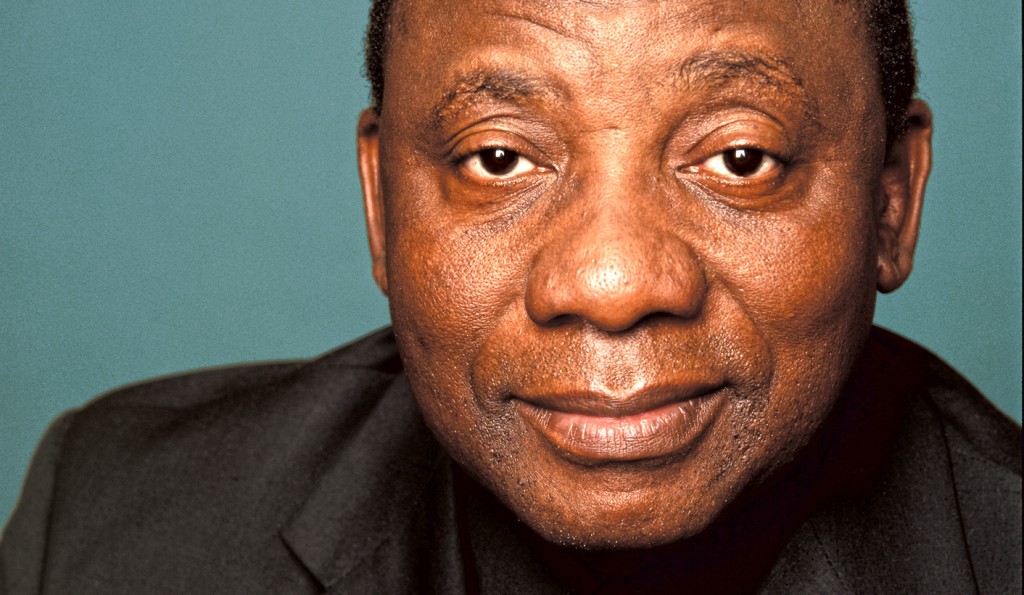Image courtesy Daily Maverick
Several weeks after Cyril Ramaphosa, Vice President of South Africa and Special Envoy of President Zuma to Sri Lanka, arrived in Sri Lanka to assist us in our search for durable post war peace and reconciliation, it is possible to observe several tactical moves by the Rajapakse Administration with regard to its post war reconciliation policies or the “North and East issues” as the Mahinda Chinthanaya, the Way Forward, manifesto of 2010, calls Sri Lanka’s unresolved ethnic problem.
The Cyril Ramaphosa Visit
That Vice President Cyril Ramaphosa, visited Sri Lanka at all was a small step forward for Sri Lanka’s snail paced post war reconciliation process. For the half decade after the end of the war, the government has been steadily stating that it will not entertain any foreign involvement in the post war reconciliation process. However, events overtook them and the international jurisdiction of International Humanitarian Law (IHL) resulted in repeated resolutions on Sri Lanka in the United Nations Human Rights Council (UNHRC). President Rajapakse also acknowledged Sri Lanka’s obligations under international law by signing in 2009, a joint statement with UN Secretary General, committing the country and his administration to three things, namely, post war rehabilitation, a political solution and accountability. However, there has been slow or no progress in implementing the recommendations of the Lessons Learnt and Reconciliation Commission (LLRC), notwithstanding claims to the contrary by the Administration, mostly because the national action plan on implementing the LLRC, does not really seek to implement the recommendation, only to make claims that no problem exists.
Accordingly the Government now finds itself in the position, that the South African initiative is its only credible international alternative to the UNHRC process in Geneva and is accordingly compelled to engage with it. The engagement however has been less than competent. Firstly there is no formal interlocutor or counterpart appointed to deal with Special Envoy Ramaphosa, an uncoordinated two man act between Ministers Nimal Siripala De Silva and GL Peiris is not a formula for a cohesive government policy. The farce with the Cabinet Spokesman claiming that the special envoy was a tourist on holiday, would have resulted in any other country, in the resignation of the Media Minister, at least as Cabinet Spokesman, but then Sri Lanka is, as the Tourist Board says, truly a land like no other. So despite the saber rattling by the Government’s resident in house pit bulls, namely the NFF’s Wimal Weerawansa and the JHU’s Champika Ranawaka, the South African initiative is on. It is now up to one of Africa’s most exciting and promising politicians to try and nudge the process forward and seek to restart a stalled reconciliation process. Regrettably the constraints of time prevented Vice President Ramaphosa from visiting Delhi after his visit to Sri Lanka, because the full support of the Indian government would be needed to provide the South Africans with international support, in facilitating reconciliation in Sri Lanka. There is suspicion in the West, that the South African process may be just to bail out the Sri Lankan government from the mess it finds itself in Geneva.
The Reappointment of Maj.Gen (Rtd) Chandrasiri as the Northern Governor
Demonstrating a schizophrenic approach to dealing with the Tamil people of the North, where the UPFA polled only 17% of the popular vote and that too mostly from Rishard Bathurdeen’s Muslim constituency of displaced northerners, the Rajapakse Administration just has no sense of even how to win friends among the Tamil polity or to have a minimum degree of consent of the governed. Major General Chandrasiri was the former Security Forces Commander in Jaffna and a good military officer. Upon retirement he was appointed Governor of the Northern Province, a majority Tamil province. During the Northern Provincial Council elections, Governor Chandrasiri, in an unprecedented act of political partisanship and in actions completely unbecoming a Governor, actively campaigned for the governing UPFA. He rushed around to their meetings, sat on their political stages and actively participated, if not led the Government’s state patronage led NPC polls effort. The result was a resounding repudiation of the Rajapakse Administration in the North, it secured only 17% of the popular vote. If the Governor had any self respect, he would have resigned. Now, perhaps in gratitude for his partisan politics he has been reappointed for five years more, demonstrating that the Administration is not serious in permitting the Northern Provincial Council to function, even with the extremely limited powers that provincial councils enjoy. The Governor’s real remit seems to be, to try and run the provincial administration by passing the Chief Minister and the elected representatives of the Tamil people, through the Chief Secretary and the military.
The Appointment of Experts to assist the Commission on Missing Persons
In an action that again ran counter to the strident rhetoric of Sinhala nationalist elements in the Government and its stated repudiation of both a war crimes probe and international experts, the Rajapakse Administration reversed itself on both these counts, though it did so after effectively ensuring total silence on the same in the Sinhala media. The government by gazette extraordinary, not only extended the term of the “Disappearances Commission” headed by retired Judge Maxwell Paranagama, which has to date received over nineteen thousand complaints of missing persons, but also expanded the scope of its activities to include an examination of whether war crimes were committed in Sri Lanka’s civil war. To add icing to the cake it appointed three distinguished international legal experts, with relevant expertise on war crimes and related issues, to assist the commission. One can only hope that the under resourced Commission and its mandate undefined experts would be successful in addressing these contentious issues that are obstacles to post war reconciliation and a durable peace in Sri Lanka.
